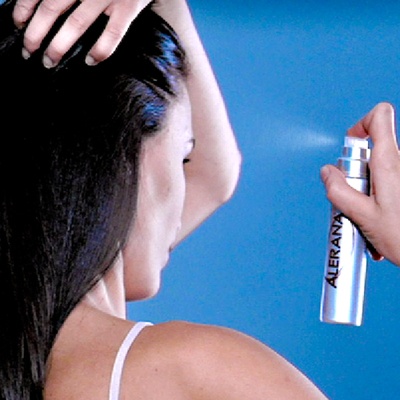Regular breast cancer checks are something we should all be well versed in by now (and if you’re not, it’s never too late to cop a feel), and as it turns out, we can tell a lot from our breasts, lumps and bumps aside.
Our boobs are pretty incredible. They can stand to attention, provide food for our young and in rare cases, predict the weather…
Changes in our nipples and areolas, for example, can often be the first sign of pregnancy, hormone imbalances and even polycystic ovary syndrome.
Here, Dr Clare Morrison of MedExpress, helps us to decode these signs and symptoms…
If your nipples change colour
The colour of your nipples is largely down to genetics and the amount of melanin in the skin. Those with darker skin tend to have darker nipples because they have more melanin.
As we get older, there is a tendency for the nipples to get darker, particularly in those who already have darker skin.

But if nipples suddenly darken, it may be a sign of pregnancy, or other hormone changes, such as taking the contraceptive pill.
Reusable condoms are coming and the future of contraception is changing
If your nipples become larger
Pregnancy is often the main cause for nipples and the surrounding skin (areola) becoming larger. However, the size of the areola may also fluctuate during the menstrual cycle, and when taking the contraceptive pill.
If your nipples become smaller
If your nipples suddenly appear smaller, it may be due to a lack of the female hormone, oestrogen, such as occurs during the menopause.
If your nipples are sore
Many of us experience sore nipples in the lead up to our period, which Dr Clare says is completely normal. Soreness can also be an indicator of pregnancy, or hormones from the contraceptive pill, injection, implant and coils.
Sometimes nipple soreness can also be caused from friction. If this is the case, it may help to wear a cotton sports bra, particularly when running or using the gym.
Do you have ‘runner’s boob’? Here’s how to stop the sagging effects of exercise
If your nipples are sprouting hairs
It’s not uncommon for the areola to sprout hairs. It doesn’t usually mean anything is wrong, but if there is also hair growth on the face and lower abdomen, it would be advisable to see your doctor, as it can be a sign of ‘polycystic ovary syndrome’, a condition sometimes associated with infertility.
Here’s how I learnt to live with polycystic ovary syndrome
If your nipples are oozing liquid
It is possible for the nipples to expel liquid, even when not pregnant or breastfeeding.
If it is blood-stained you should see your GP, as it can be a sign of an inflamed milk duct or even breast cancer.
Sometimes nipple discharge can be caused by a hormone imbalance or a pituitary tumour, so don’t ignore this symptom, especially if it is a significant change from normal.
If your nipples are dry and crusty
Dry or cracked skin around the nipple area could be caused by eczema, allergies, chafing, thrush or bacterial infection.
Have a chat to your a pharmacist about suitable treatment. Any persistent changes to the nipples, and surrounding skin should be checked by your GP.
Discharge, smells and swollen lips. This is what every woman should know about her vagina…



